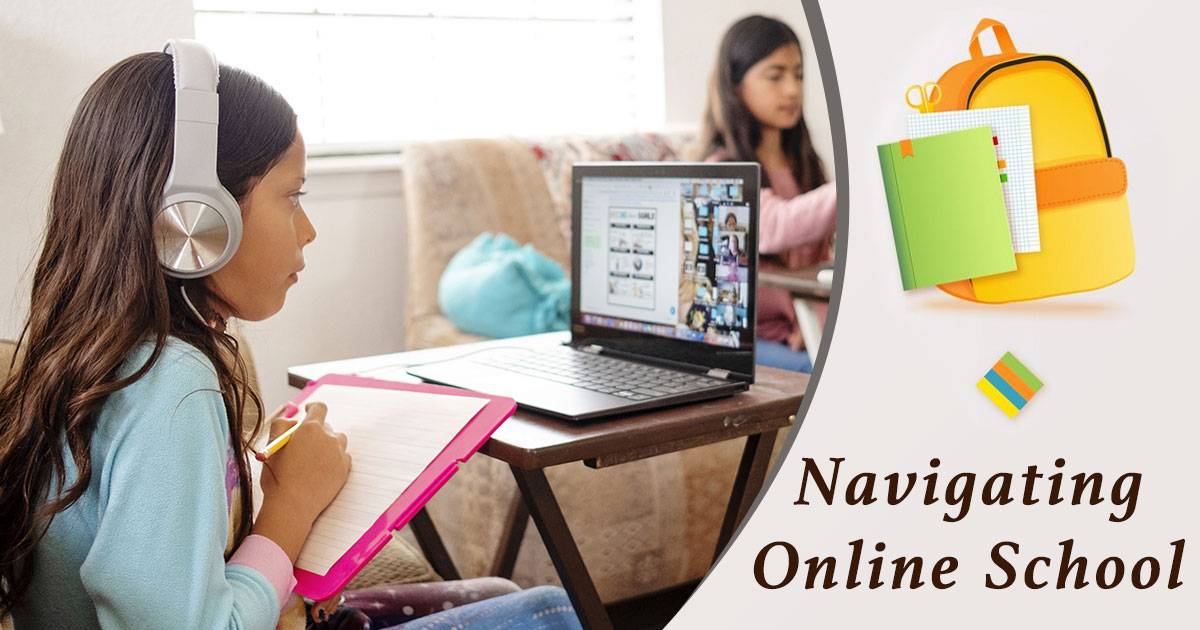Navigating Online School: Tips for Success & Making the Most of It

Online schooling is becoming an important choice for many students who need a more flexible and personalized way to learn. It offers benefits like setting your own schedule, learning at your own pace, and studying in a safe environment. A study by the Digital Learning Collaborative showed that the number of students in online schools grew by 75% from 2020 to 2021, which means more people are seeing how useful it can be.
This type of schooling is especially helpful for students who live far away from regular schools due to where they are located. For them, being able to learn from home with an internet connection makes education more accessible. However, while online schooling might seem easy at first glance, it comes with its own challenges. Students need to know that there are important things to think about to make sure they do well in this kind of learning.
How Does Online School Work?
Online school lets you learn from anywhere by using digital platforms. You attend live virtual classes where you can talk to teachers and classmates, just like in a regular classroom. It also allows you to learn at your own pace, so you can take your time with tough subjects or move quickly through easier ones.
Here are some challenges of online schooling and how to deal with them:
- Feeling Isolated: Without the daily interactions of a physical school, it’s easy to feel alone. To fix this, join online discussions and participate in virtual clubs or study groups to stay connected.
- Needing Self-Motivation: With no teacher watching over you all the time, you must keep yourself on track. Create a daily schedule and set up a quiet study space to help you focus and stay organized.
- Dealing with Distractions: Home can be full of interruptions, like family members and chores. Set clear rules about your study time and try using noise-canceling headphones to help you concentrate.
- Technical Issues: Problems with internet connectivity or computer glitches can disrupt learning. Ensure you have a reliable internet connection and keep your devices updated. Having a backup plan, like printed materials, can also help.
- Lack of Immediate Feedback: In online classes, you might not get instant feedback from teachers. Be proactive in reaching out through emails or asking questions during virtual office hours to clarify doubts.
- Balancing Screen Time: Spending too much time in front of a screen can be tiring. Take regular breaks, practice the 20-20-20 rule (every 20 minutes, look at something 20 feet away for 20 seconds), and include offline activities in your routine.
How to Excel in Online Schooling
Online schooling can be a rewarding experience if you use the right strategies and skills. Here’s how to make the most of it:
1. Starting Online School for High School Students
Choosing the right program is crucial because it sets the foundation for your learning journey. Research and select accredited online programs that match your academic needs and future goals. The goal is to ensure you receive a quality education that prepares you for college or career paths.
2. What You Need for Online School
Having the right equipment is essential for smooth and effective learning. A reliable computer or tablet and a strong internet connection are necessary to access lessons and participate in virtual classes without interruptions. A headset and webcam are needed for clear communication during live sessions. The aim is to facilitate seamless interaction and learning.
3. Setting Up a Study Schedule
A routine helps you manage your time effectively and ensures you don’t fall behind. By setting a consistent daily schedule that includes time for study, breaks, and activities, you develop discipline and keep stress at bay. The goal is to maintain a balanced approach to your studies and personal life.
4. Creating a Productive Workspace
A dedicated workspace minimizes distractions and boosts concentration. Choose a quiet spot in your home with good lighting and minimal noise where you can keep your study materials organized. The objective is to create an environment that encourages focus and productivity, making learning more efficient.
5. Using Technology Effectively
Technology is the backbone of online schooling. Get comfortable with the digital tools and platforms your school uses, as these will help you access resources, submit assignments, and communicate with teachers. The goal is to maximize these tools to enhance your learning experience and resolve any tech issues swiftly to avoid disruptions.
6. Staying Organized
Keeping your schoolwork and resources organized makes studying easier and reduces anxiety. Use digital folders or traditional binders to sort notes and assignments. Regularly reviewing your materials helps reinforce learning and prepares you for exams. The aim is to streamline your learning process and boost your confidence in handling coursework.
Online Schooling for Special Needs Students
Online schooling is a wonderful opportunity for students with special needs, offering a learning experience that’s both flexible and personalized. This type of education allows students to adapt their learning environment to fit their unique needs, ensuring they get the help they require to succeed.
One of the biggest benefits is accessibility. Students can learn from home, accessing lessons and resources without the stress that might come from a traditional school setting. This can be especially helpful for those who find physical school environments challenging. Plus, online schooling lets students learn at their own pace. They can take extra time to understand tough subjects without feeling rushed.
In summary, online schooling is more than just a different way to learn—it’s a chance for students with special needs to thrive. By offering a personalized and supportive environment, it helps students reach their educational goals in a way that works best for them.
